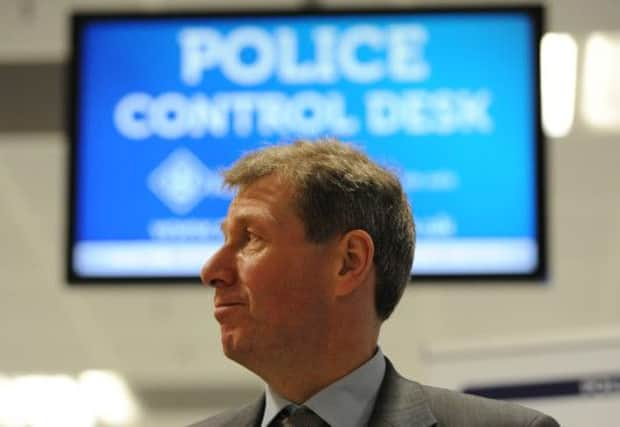Leaders: Fight against crime | Bannockburn


Thousands took part in a midnight march on the Southside of Glasgow to highlight the dangers of sex attacks. The nighttime event, called These Streets Are Made For Walking, began near the scene of the rape of a young woman last month.
Kenny MacAskill, the justice secretary, responded to this clear expression of public concern yesterday by assuring MSPs that an extensive inquiry has been launched and that patrols have been stepped up in parts of the city which have experienced a series of such attacks. Extra car and foot patrols are now being carried out in the city centre and other parts of Glasgow.
Advertisement
Hide AdAdvertisement
Hide AdAll this is to be welcomed. The police have a difficult task just in attempting to keep us safe, a complicated job in the modern world. They are just a part of the justice system but often they are the people on the ground at the sharp end of changing deeply embedded cultures in order to uphold the law. The fact is that just locking people up, although a vital part of the system and something that still has to have a deterrent factor, is not the most effective way of fighting crime – a more sophisticated approach is needed. And success in doing that should be applauded when it happens.
The fact is that the big picture shows Scotland’s crime statistics are, by and large, going the right way. And there are two trends in particular which should be noted and which deserve to be more widely welcomed. The first is the drop in gang-related crime in Glasgow, a phenomenon that has blighted the city and its reputation for far too long. The culture of gangland crime has proved hard to eradicate despite decades of housing improvement and welfare reform – the two factors most often cited as a contributory factor – or too often as an excuse. The focused measures undertaken by the police over a long-term period through identifying and working with the city’s most violent individuals seem to be having an effect. Gang crime not only blights communities but also transfers from generation to generation, and the reduction is to be welcomed.
Another encouraging trend is that reconviction rates too are heading down, also pointing to a deep-seated culture change, co-ordinated multi-agency work and the application of long-term approaches. Incarceration is an essential part of the justice system. But it cannot be the full response to a problem that requires acceptance of responsibility, counselling and treatment to effect a permanent change in attitude and behaviour. Progress here too is to be welcomed, and gives hope to the thousands of demonstrators this week who have made clear their concerns to the police, the justice system and the government. It is true that the fight against crime demands eternal vigilance.
The battle to sell tickets
You need to be a Braveheart, it seems, to sell tickets for this year’s 700th anniversary of the Battle of Bannockburn.
First, the ambitious commemoration was cut from three days to two. VisitScotland took over the marketing and promotion from the National Trust for Scotland. Still tickets were slow to move – partly because of a clash with the UK government’s Armed Forces Day celebrations on the first day of the Bannockburn Festival. Now the organisers have been forced to slash ticket prices after selling just over 8,000 tickets out of 20,000 available.
A family ticket for the festival was pitched at £55. Now the organisers have lopped off £10 – an 18 per cent reduction – in the hope of boosting sales. The new price of £45 is by no means an outrageous outlay given the array of events and attractions. And it is less than many would fork out for taking the family to a Scottish Premier Division football game.
But the problem with the price-slashing approach is two-fold. First, rather like panic price cuts in the run-up to Christmas, many will hold off, hoping that prices will be even lower on the day. This could lead to a last-minute rush or equally a dying of interest. The second is that this is a prestigious international event with political overtones, no matter how much the organisers downplay this. Both VisitScotland and the Scottish Government will be desperate to avoid an expensive flop, with TV cameras panning over rows of empty seats. Such scenes might suggest that Scots don’t care that much about Bannockburn or even independence – very far from the truth. For these reasons, and with tens of thousands of tickets still to sell, £45 is unlikely to prove the lowest price.